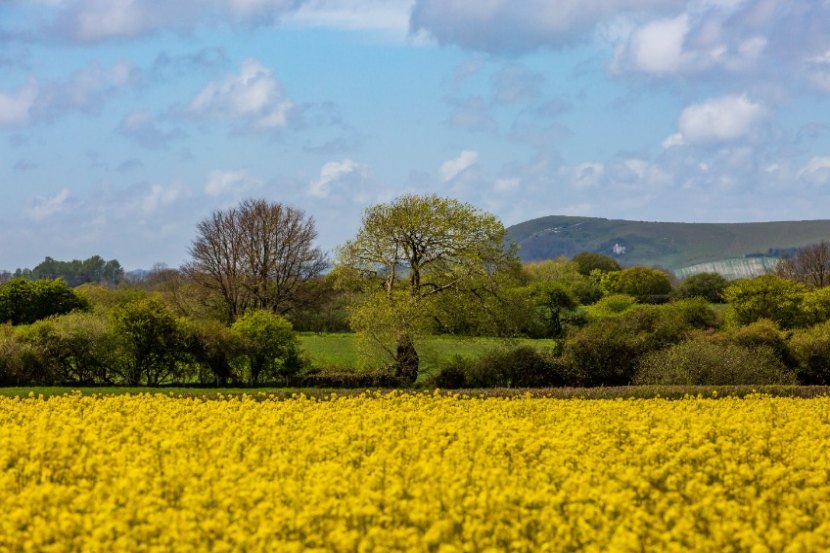ELMS payments to rise to encourage uptake, government confirms

Farmers will receive higher rates of payments through the government's new Environmental Land Management schemes (ELMS), it has been confirmed.
More money will be paid out to encourage farmers to sign up to the post-Brexit system of support, the government announced today following rumours of an overhaul.
Speaking at the Oxford Farming Conference (OFC), Farming Minister Mark Spencer said there would be more money for the Countryside Stewardship (CS) and the Sustainable Farming Incentive (SFI).
He explained that the increase in payments would provide more support to the industry and drive uptake at a time of rising costs for farmers.
The Defra minister also confirmed an expanded range of actions under the schemes, which farmers could be paid for, to be published soon.
The new changes mean farmers could receive up to a further £1,000 per year for taking nature-friendly action through the SFI.
This new 'management payment' will be made for the first 50 hectares of farm (£20/ha) in an SFI agreement, to cover the administrative costs of participation and to attract smaller businesses.
And farmers with a CS agreement will see an average increase of 10% to their revenue payment rates – covering activity such as habitat management.
Defra is also updating capital payment rates, which cover one-off projects such as hedgerow creation, with an average increase of 48%.
Meanwhile, capital and annual maintenance payments for the England Woodland Creation Offer (EWCO) and Tree Health Pilot (THP) will also be updated this year, Mr Spencer confirmed.
“My challenge to our great industry is simple - this year, take another look at the Environmental Land Management schemes and think about what options and grants will help support your farm," he said at the OFC.
"We are increasing payment rates to ensure farmers are not out of pocket for doing the right thing by the environment.
“By increasing the investment in these schemes, I want farmers to see this stacks up for business – whatever the size of your holding.”
Responding to the announcement, the NFU said that while some of the changes were welcome, it risked being 'too little too late' as farmers needed more clarity on ELMS and available options.
The union warned this was happening against the backdrop of current economic challenges and the rapid erosion of direct payments.
NFU vice president, David Exwood said: “It is hugely frustrating that nearly five years on from Defra’s Health and Harmony consultation, which set farming in England on a path towards public goods for public payments, we still only have three standards available for the SFI.
"It’s a sad reflection of the scheme’s progress and development that NFU members know more about what they will lose in direct payments than what they will gain from taking part in these new schemes."
Mr Exwood said in order for the ELMS to be a success, it needed to provide more certainty to farmers, as well as to fairy reward businesses taking part.
"This means schemes that are inclusive and available to every farm business - whether upland or lowland, tenant or owner-occupied - with a range of practical and profitable options available through a ‘foundation’ SFI standard to ensure the high uptake needed so these schemes have the desired impact.
"Ministers must also demonstrate transparently how direct payments have been redirected to the ELM programme."
The Country Land and Business Association (CLA) added that while the government was 'listening to the concerns of farmers', things were 'moving too slowly'.
"We have had many promises of improvements in the future," said Mark Tufnell, the group's president.
"What we desperately need are details of payment rates and standards for 2023, particularly for the Sustainable Farming Incentive.
"We believe government’s policy on ELMS to be potentially world-leading, but we need a world-leading government operation to underpin it."
Jonathan Armitage, head of farming at Strutt & Parker said: “It seems unlikely that a 10% increase in CSS management payments or the extra £1,000 on offer through the SFI will deliver a step change in uptake given the costs of delivery.
“The increases in capital payment rates under CSS are more significant, which may encourage more standalone capital grant applications. The hedgerow creation payment, for example, has almost doubled from £11.60 per metre to £22.97 per metre.
“We also note that Defra has again decided not to increase payment rates for Environmental Stewardship agreements, which seems unfair to those stuck in old ELS/HLS agreements.”








